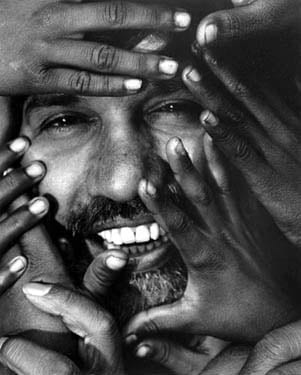Labor and human rights activist and long-time Solidarity Center ally Kailash Satyarthi won the 2014 Nobel Peace Prize, the Nobel committee announced this morning. He shares the prestigious award with Malala Yousafzai, the Pakistani girl who survived a brutal 2012 Taliban attack for her stance on girls’ education.
As a grassroots activist, Satyarthi has led the rescue of more than 78,500 child laborers and survived numerous attacks on his life as a result. As a PBS profile describes Satyarthi’s work: “His original idea was daring and dangerous. He decided to mount raids on factories—factories frequently manned by armed guards—where children and often entire families were held captive as bonded workers.”
Solidarity Center Asia Regional Director Tim Ryan said, “Kailash’s lifetime commitment to the cause of eradicating child labor is an inspiration to every human rights defender around the world to promote the rights of the most vulnerable, the most economically exploited young workers and the paramount importance of finding ways to secure basic education for all children around the world.”
Satyarthi’s decades of work to end exploitive child labor have encompassed advocacy for decent work and working conditions for adults, including domestic workers, because impoverished families must often make the difficult choice of sending their children to work for the sake of family survival.
“Child labor is a largely neglected, ignored, denied aspect of human rights,” Satyarthi told the Solidarity Center in a recent interview. “This is crime against humanity and is unacceptable in any civilized society.”
In 1998, Satyarthi created the Global March Against Child Labour, a coalition of unions and child rights organizations from around the world, to work toward elimination of child labor. Global March members and partners are now in more than 140 countries. Many of these civil society groups, including the Solidarity Center, came together to launch End Child Slavery Week November 20–26, with the focus this year on pushing the United Nations to make ending child labor a key priority of its 15-year action now under development.
Winning the Nobel “will help in giving bigger visibility to the cause of children who are most neglected and most deprived,” Satyarthi said upon learning he won the prestigious prize. “Everyone must acknowledge and see that child slavery still exists in the world in its ugliest face and form. And this is crime against humanity, this is intolerable, this is unacceptable. And this must go.” (Listen to his interview with the Nobel Prize team.)
At age 26, Satyarthi gave up a promising career as an electrical engineer and dedicated his life to helping the millions of children in India who are forced into slavery by powerful and corrupt business and land owners.
In 1994, Satyarthi spearheaded Rugmark (now known as GoodWeave), the official process certifying that carpets were not woven by children, and aimed at dissuading consumers from buying carpets made by child laborers through consumer awareness campaigns in Europe and the United States.
His life’s achievements encompass a range of human rights work. Satyarthi created a series of “model villages” free from child exploitation, and some 356 villages have emerged in 11 states of India since the model’s inception in 2001. The children of these villages attend school and participate in a wide range of governance meetings to discuss the running of their villages, through child governance bodies and youth groups.
“Showing great personal courage, Kailash Satyarthi, maintaining Gandhi’s tradition, has headed various forms of protests and demonstrations, all peaceful, focusing on the grave exploitation of children for financial gain,” said Nobel Committee Chairman Thorbjorn Jagland said.
Satyarthi’s award of the Nobel Prize is the latest high-profile recognition of worker rights activists in the last month. Earlier this week, Alejandra Ancheita, founder and executive director of the Mexico City-based ProDESC (Project for Economic, Cultural, and Social Rights), won the prestigious international Martin Ennals Award for Human Rights Defenders. And in September, Ai-jen Poo, founder and director of the National Domestic Workers Alliance, became a MacArthur ‘Genius’ Grant recipient.

